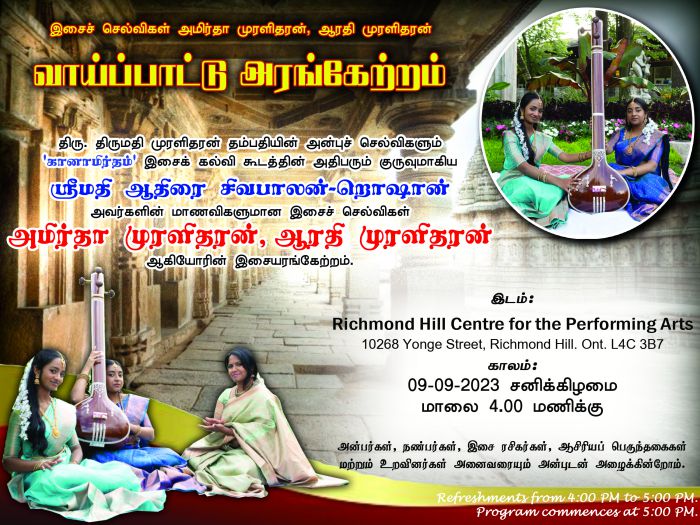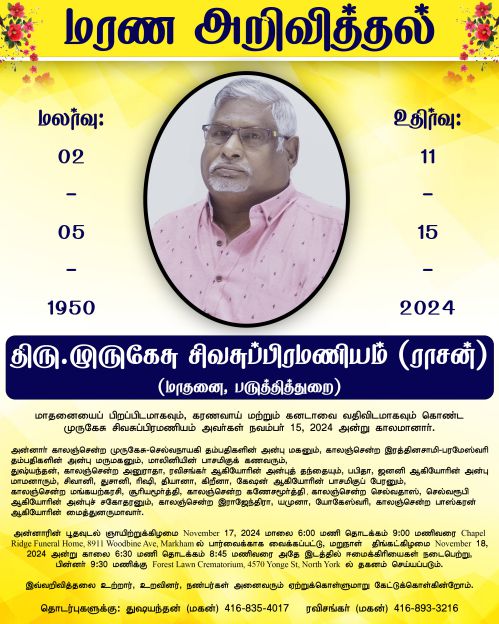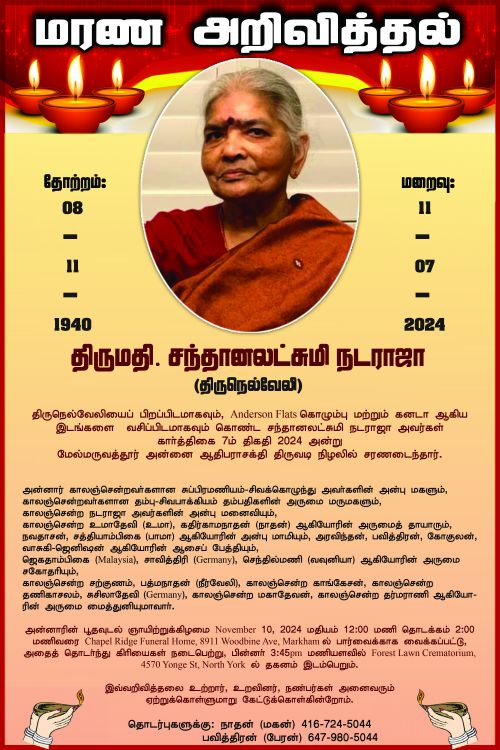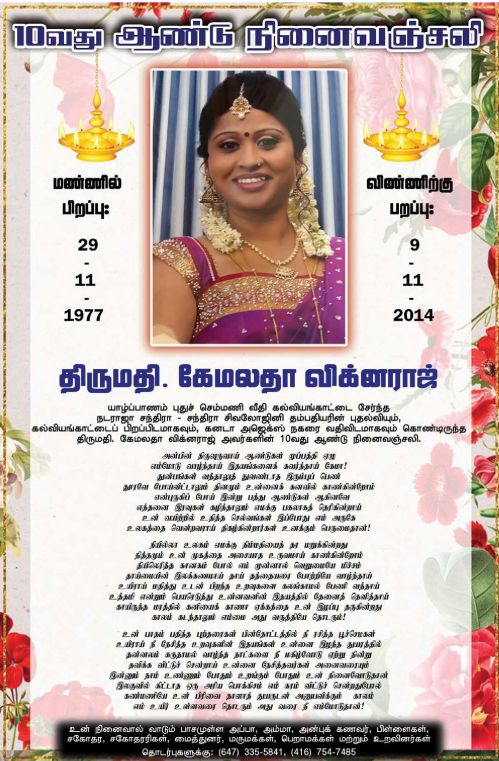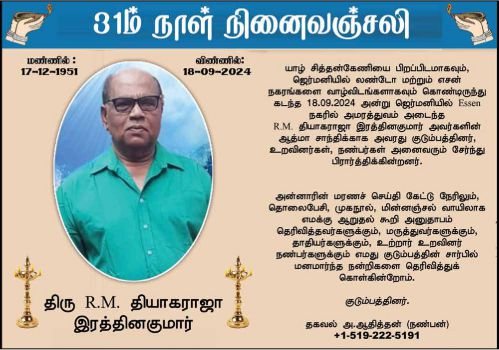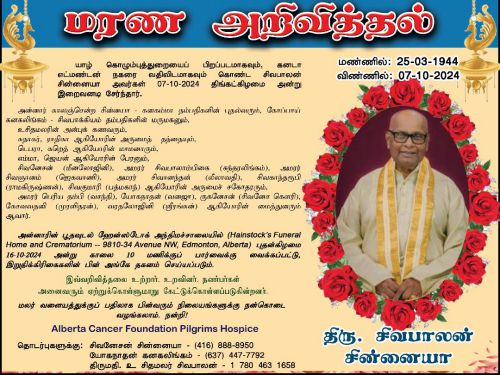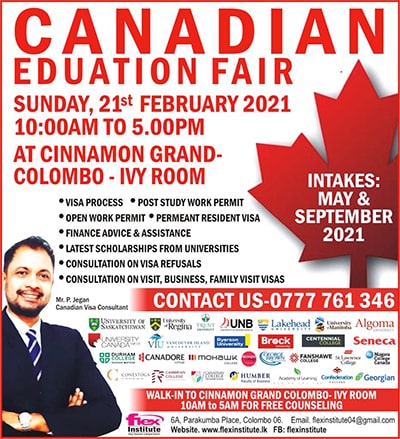Sri Lanka unable to answer a simple question by crying mothers for more than six years
Share
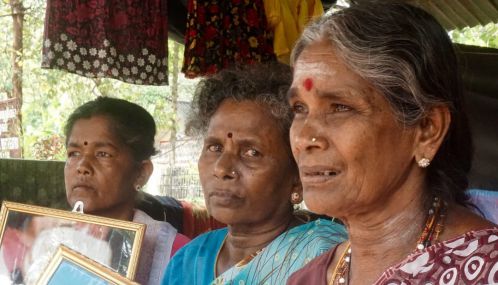
Siva Parameswaran
“Impunity compounds the suffering and anguish. Under international human rights law, families and societies have a right to know the truth about what happened. I call on Member States to fulfil this responsibility”-Antonio Guterres, Secretary General UN
This culture of impunity has led to thousands of persons becoming victims of enforced disappearance in Sri Lanka. And, elderly Tamil mothers have been peacefully protesting for over 2380 days just seeking an answer to a simple question.
“Where are our relatives”?
Age has withered their physical strength but not their mental courage as the protest led by women- mostly elders continue seeking to know what happened to their loved ones who either went missing during the brutal civil war or handed over or surrendered to the armed forces during the final phase or immediately after the war was declared as over by the state security forces.
Thousands of Tamils went missing during and after the war and the Vadduvakal bridge stands a silent testimony to those who walked on it only not to be seen again for years now.
Many of the Ammas are frail and weak but continue to walk daily seeking that elusive answer.
By an act of Parliament, Sri Lanka created the Office on Missing Persons (OMP) in August 2016 when Maithripala Sirisena was the president. However, even after seven years, the OMP is yet to find even a single person, while more than 20,000 complaints have been filed with them.
The OMP boasts its establishment marks a significant milestone in the efforts of the Government of Sri Lanka to address the issues of the missing and disappeared. “Successive governments set out measures to investigate disappearances, including through appointing commissions of inquiry or ad-hoc mechanisms with limited mandates. While making critical contributions in the way of recommendations, these previous mechanisms were unable to provide answers to the many thousands of families searching for their loved ones”, their introduction on the official website says.
As a permanent and independent state institution, the OMP is responsible for clarifying the fate and whereabouts of persons who went missing or disappeared in connection with the conflict, political unrest, or civil disturbances, or as a result of enforced disappearances as their official mandate.
This is exactly the same the Association for Relatives of Enforced Disappearances (AERD) is asking for relentlessly, with no honest and proper forthcoming. The AERD too has made it clear “they don’t have faith in the OMP”.
The mass rally organized by the AERD on the international day of the enforced disappearances (August 30) while rejecting the OMP has demanded an ‘international justice mechanism’ to find their missing and disappeared ones and has appealed to the UN Human Rights Commissioner Volker Turk in this regard.
More than 180 mothers and relatives who were part of the AERD over the past 7 years have lost their lives in August alone without knowing what happened to their children, a statement from them on Wednesday (30) said.
AERD says close to 100,000 are missing or disappeared in Sri Lanka. However, the details from the OMP put the total number of registrations done with it as 21,374 which according to them has duplicate entries too which amounts to 2,664. Details of 3,742 missing persons from the tri-services have also been recorded with the OMP according to them.
Breaking down the details, it could be seen if the duplicate entries and tri-service numbers are deducted the number of registrations about missing Tamils stands at 14,988.
The OMP has come under severe criticism that it is not even able to solve one case of missing tri-service personnel. If such is the case, how will they solve cases of missing Tamils which are over five times the number question elderly mothers.
Elderly mothers who brave the sun and rain in continuing their peaceful protest demanding an answer about their kith and kin have also come under intimidation from the state agencies a detailed statement from the AERD states. “Under the successive Sinhala majoritarian governments, the mental torture and intimidation of mothers and women activists have intensified. Military intelligence officials came to our house and severely warned us not to participate in the protests. This is a critical dilemma for many mothers- whether to continue searching for the missing son/daughter or ensure the safety of the remaining children by not pushing them into danger or totally keeping away from all activities. We undergo an enormous amount of racial discrimination at the hands of the Sri Lankan officials. As they know we participate in the protests we are unable to get any benefit of the government schemes and loans from the banks.”
The protesting mothers of the AERD also share the anguish even relatives have started shunning them and slowly they are losing their family ties.
“Due to constant nagging and inquiries by the intelligence and other state agencies even our relatives who used to comfort us earlier are keeping away from us now. They are afraid to get in touch with us”.
However, persons like Sandhya Eknaligoda-wife of missing cartoonist and journalist cum political analyst Prageeth Eknaligoda- have expressed their solidarity with the Tamil mothers who seek justice for their missing family members. In an act of solidarity, Sandhya participated in the march organized by the AERD in Batticaloa.
Prageeth Eknaligoda went missing after the war on 24 January 2010 a couple of days before the Presidential election, when the country was governed by Mahinda Rajapaksa. He was said to be investigating the alleged use of chemical weapons by the Sri Lankan army against civilians while fighting the LTTE.
The UN says enforced disappearance has become a global problem and has been frequently used as a strategy to spread terror within the society.
“The feeling of insecurity generated by this practice is not limited to the close relatives of the disappeared but also affects their communities and society as a whole. Once largely the product of military dictatorships, enforced disappearances can nowadays be perpetrated in complex situations of internal conflict, especially as means of political repression of opponents”.
UN in their latest report on the International Day of the Victims of Enforced Disappearance-30th August expressed concern about the safety and well-being of the families of those who have gone missing.
“The families and friends of the victims, experience slow mental anguish, not knowing whether the victim is still alive and, if so, where he or she is being held, under what conditions, and in what state of health. They alternate between hope and despair, wondering and waiting, sometimes for years, for news that may never come. In addition, they are well aware that they, too, are threatened, that they may suffer the same fate themselves, and that searching for the truth may expose them to even greater danger”.
In most cases, the victim of enforced disappearance or gone missing happens to be the family’s main breadwinner. Their emotional upheaval is thus exacerbated by material deprivation, made more acute by the costs incurred should they decide to undertake a search.
“The serious economic hardships which usually accompany a disappearance are most often borne by women, and it is women who are most often at the forefront of the struggle to resolve the disappearance of family members. In this capacity, they may suffer intimidation, persecution, and reprisals. When women are themselves direct victims of disappearance, they become particularly vulnerable to sexual and other forms of violence”.
And, that is exactly what is happening in Sri Lanka, although the elderly mothers, wives, and sisters are in no mood to relent until their only question “Where are our relatives”? is being answered.








